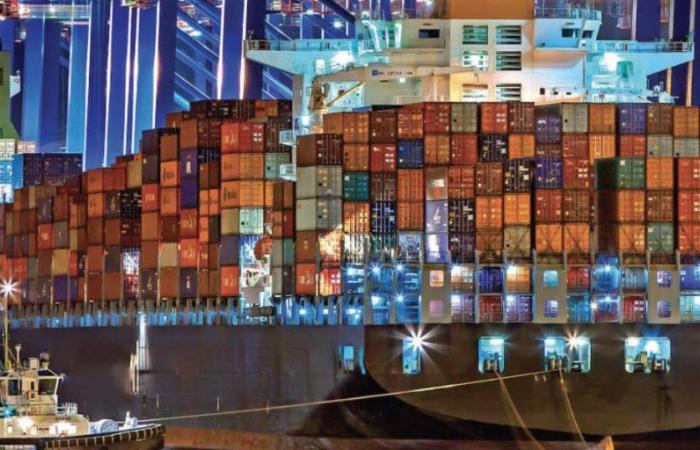Despite a critical situation, external demand for Moroccan products is increasing. This is the case for Spain, whose imports from Morocco change from year to year, particularly for primary sector products.
Trade between Morocco and Spain has never been so prosperous, particularly on the Iberian Peninsula. Indeed, the latest statistics indicate that imports from Morocco in July increased sharply.
Strong growth
Spain would have increased its spending on imports by 16% in July compared to the same month of last year, for a purchasing volume which rose to 36.483 million euros, according to published data by the Ministry of Economy and Trade. Certainly, expenses are higher, but, at the same time, the quantity of goods acquired is less significant, down 20% during the first seven months of the year.
However, the increase in expenditure on imports from Morocco by Spain is largely explained by the price of oil, imports of which are estimated at 506 million euros in July, an increase of almost 48 % compared to the previous year.
In the same vein, the particularly high prices of different types of oils and essential oils also contributed to this hefty bill, since imports increased by 35% to stand at 503 million euros. The change in the volume of imports was also noted at the level of machines and mechanical devices with a slight increase (3.333 M€), materials for the manufacturing industry (9.8% for 1,355 M€), steel (12.60% for €1,160 million), knitted (3.71%) and non-knitted clothing (4.62%), chemical products (26.43% for €507 million) and paper and cardboard (17 .93% for €421 million).
Along the same lines, demand for primary products has experienced strong growth. Official figures show that fish imports increased by 14.63% in one year for a value of around €619 million. For cereals, Spain was supplied with €426 million, an increase of 6.77%. As for fruits, Morocco shipped a volume equivalent to €339 million, which represents an increase of 11.15%.
Furthermore, the import of vehicles worth €3.685 million recorded a drop of 25% over the same period. Same trend for pharmaceutical products which were billed at €1,873 million, noting a decline of almost 4%.
Pesticides, subject of controversy
However, it should be noted that the increase in imports of primary sector products has sparked controversy among Spanish farmers since the beginning of the year, who had raised protests against Moroccan products, under the pretext of high pesticide content. The fact is that farmers denounced all products that come from countries outside the European Union and mainly from Africa.
For them, the pesticides used remain prohibited on community territory. Denunciations which were based on analysis results. For example, analyzes revealed that olives and rice from Morocco contained the pesticide chlorpyrifos at a rate of 0.067 mg/gk-ppm, while the maximum residue limit (MRL) set by the European Union is 0.01 mg/kg, so the products would contain up to almost 7 times more of the substance than permitted by European authorities.
In addition, a finding supported by other analyzes carried out on Moroccan products, which confirm the presence of a high pesticide content. On the side of Moroccan producers, exporters have always affirmed that they are forced to comply with the specifications imposed by EU countries so that their products reach the European market. Many of them carry out self-checks before shipping their goods.
As a reminder, the European Parliament has recently vetoed the importation of foods containing pesticide residues banned in the EU. This forces producers to comply with the new requirements. These decisions concerned residues of the fungicide cyproconazole and the insecticide spirodiclofen in cereals, meat, and three fungicides (benomyl, carbendazeim and thiophanate-methyl) used for citrus fruits.
Note that this is not the first time that the European Parliament has opposed a proposal from the European Commission aimed at modifying the limits of certain chemicals. Last January, he rejected the commission’s draft regulation aimed at increasing maximum residue limits (MRLs) for the insecticide thiacloprid on more than 30 products from third countries.
Maryem Ouazzani / ECO Inspirations
whatsapp Receive recent economic news on your WhatsApp






